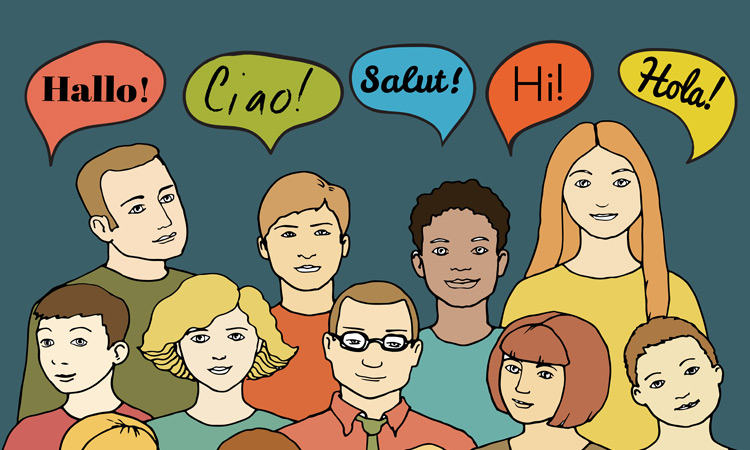4 reasons language is helping you
About half of the world’s population is bilingual to some degree. And if you’re one of these billions, you already know that there are practical and social benefits of being bilingual, or speaking a second language. Nothing beats the more personal and meaningful cultural experiences you’ll have while traveling, something you just can’t get with Google Translate.
Beyond these benefits, studies indicate that bilingualism improves certain mental skills and brain functions for both children and adults.
Here are 4 big reasons why it’s better to be bilingual:
1. Social savvy
A study published the University of Chicago found that bilingual kids have better communication skills and are better at interpreting a speaker’s meaning than children who are exposed only to their native tongue. “Children in multilingual environments have extensive social practice in monitoring who speaks what to whom and observing the social patterns and allegiances that are based on language,” explained Katherine Kinzler, an expert on language and social development.”
2. Cognitive benefits
The brain is a muscle and as with any muscle, the more you use it, the stronger it becomes. In a bilingual speaker, both languages are active all the time which means the bilingual has to choose which language to use and which to inhibit, which researchers think leads to greater cognitive control. Thanks to the ongoing “brain workout,” bilinguals have better executive function – basically, an easier time switching between tasks and filtering out unnecessary information.
3. Neurological benefits
Anyone who studies a new language can experience a kind of “boost” in brain activation and connectivity. Some of the neurological benefits of bilingualism extend to those who begin learning and using a second language as adults: a recent study showed measurable brain growth in adults who were trained intensively in a second language for just over one year.
4. Aging Antidote
Studying a second language is one way to feed your brain. Researchers found evidence that bilingualism had a positive impact on cognition, including later onset of dementia. Bilinguals performed significantly better than predicted from their baseline cognitive abilities, with strongest effects on general intelligence and reading. The study results suggest a positive effect of bilingualism on later-life cognition, including in those who acquired their second language in adulthood.
Bilingualism is GOOD for people – children included! The bottom line: Speaking two languages = greater neural activation = enhanced brain function for longer in your life.



